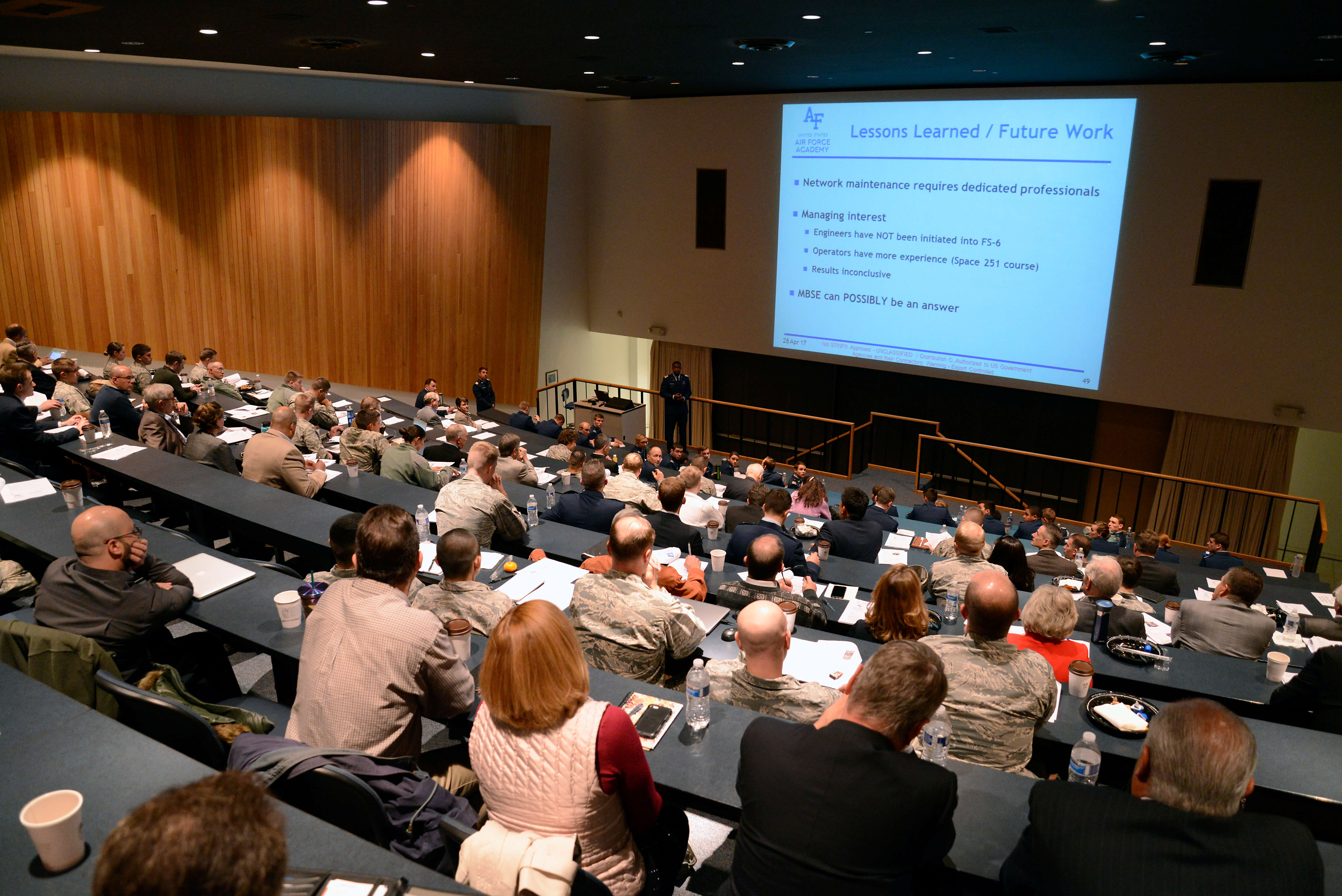Cadets showcase FalconSAT program at end-of-semester review

Ray Bowden/May 2, 2017
Cadets gave an end-of-semester review on the Air Force Academy’s Falcon Satellite Program to faculty and the school’s space-community partners April 28.
The FalconSAT program is the Academy’s small-satellite engineering program. Cadets design, built, test and operate satellites, guided by faculty and technical-staff as part of a year-long senior capstone design experience. The program is administered by the Academy’s Space Systems Research Center under the direction of the Astronautics Department.
Col. Martin France, head of the Academy’s Astronautics Department, said the review served several purposes.
“The cadets get the opportunity to hone their briefing skills in front of a large, high-level audience,” he said. “Our stakeholders and sponsors from around the country see what they’re getting for their many diverse investments in our programs.”
France said the review also helped faculty close what he called the “accountability and documentation loop.”
“It assures us that we can pass our programs successfully to the Academy’s next class and not skip a beat,” he said.
Cadet 1st Class Christian Arnold said the FalconSAT program tests new components in space.
“We perform a real Defense Department mission,” he said. “The program gives us hands-on experience. We’re building real satellites, so there are a lot of challenges.”
Cadet 1st Class Ashley Morgan said the review summarized the work cadets have accomplished.
Some of that work discussed at the review is focused on improving future satellites’ power generation capabilities, communications, and understanding of contamination in space.
“We’re building a testbed of technology for the world to use,” Morgan said.
Most cadets involved in FalconSAT projects pursue bachelors’ of science degrees in astronautical engineering but, like Morgan, cadets in several other majors enroll in the FalconSAT capstone class.
“It’s multidisciplinary and inherently encourages teamwork and collaboration,” she said. “As an ‘outside major,’ I feel like a member of the ‘astro’ department after having worked with the department for a year.”
Arnold said the review affects junior cadets, even those who have not selected an academic major, by exposing them to the space community.
“The lessons learned make the program better for them and pushes some of them into an aeronautics or astronautics career,” he said. “The FalconSAT program gives cadets a better understanding of Air Force operations, too.”
Learn about the Academy’s space mission.